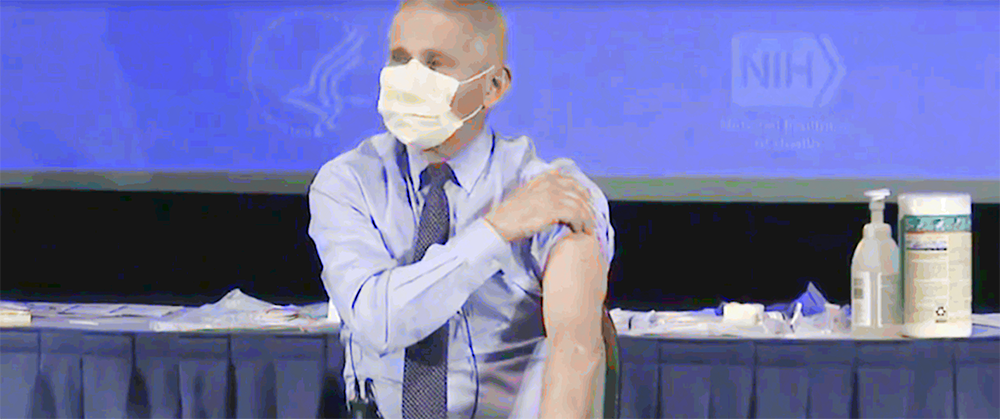Dr. Anthony Fauci, the nation’s top infectious disease expert, got his first dose of the Moderna coronavirus vaccine on Dec. 22, 2020. Fauci was joined by Health and Human Services Secretary Alex Azar and NIH Director Dr. Francis Collins./By CSPAN
By Morgan Fischer | State Press
ASU Health Services have yet to provide additional vaccine doses to immunocompromised faculty and students but will work with people on a case-by-case basis, according to Aaron Krasnow, the associate vice president of health and counseling services.
The Centers for Disease Control and Prevention now recommends “moderately to severely immunocompromised” individuals receive an additional shot of the COVID-19 vaccine after their initial two doses of an mRNA vaccine.
Related: D-backs game delayed due to COVID-19 contact tracing for Phillies
The third shot is given to help improve immunocompromised people’s response to the initial vaccine series, as their “immune systems may not build the same level of immunity to 2-dose vaccine series compared to people who are not immunocompromised,” the CDC’s recommendations page for immunocompromised individuals says.
Booster shots have not been recommended by the CDC for any other population at this time, but the Biden administration and U.S. Department of Health and Human Services announced a plan to begin offering booster shots to all this fall.
Beginning Sept. 20, booster shots of the mRNA-based COVID-19 vaccines, Pfizer and Moderna, will start being provided to the eligible public whose second dose was given eight months ago or earlier.







